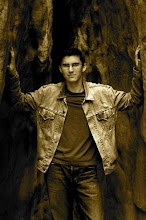
The knight is Antonius, a returning Crusader experiencing an existential crisis. As Antonius travels across a plague-stricken Europe, he is confronted by Death who has come to relieve him of his life. However, he manages to temporarily postpone his own demise by challenging death to a game of chess, played out in installments. In between these rounds, Antonius travels homeward, desperately trying to find the answers to the Great Questions that burden his soul.
The Seventh Seal is so saturated with philosophical themes and literary allusions it feels as if the screenplay might have been written by Chaucer or Dante. The film seems more like literature than cinema, which probably helps explain why it was so hugely significant in changing people's understanding of movies in the late 1950s. Though The Seventh Seal’s critical position seems to have waned recently, this film was undeniably instrumental in causing millions to see cinema as a significant artistic medium instead of just entertainment for the masses.
The Seventh Seal has been parodied in everything from Monty Python to (500) Days of Summer, and for good reason: its imagery is incredibly iconic. The images of Death are particularly amazing. These and other images help make the film feel very surreal and dreamlike in parts. Visually, it rises above historical or mythic depictions of the Middle Ages, creating a wasteland of unanswered metaphysical dilemmas.

Yet, at the same time, the film has undeniably realistic qualities, largely because of its actors who reflect the grimness and plainness of the world their characters inhabit. Their performances are fascinating and stirring. There are so many great interactions in this movie. My favorite, I believe, is the scene where Antonius' nihilistic squire converses with a local artist painting a mural in a church. They discuss the nature of death and art, an exchange I found fascinating.
The Seventh Seal creates an intriguing universe for us to experience. This is a world where men see supernatural visions and make fart jokes; a place where people contemplate existential dilemmas while singing tavern songs. Its full of all the paradoxes and contradictions that come when people encounter the Extreme. Like Bergman's Europe, it's a world trying to come to terms with the threat of complete disillusionment and total destruction. Bergman's knight wants to know where God is after the Crusades and the Plague. After WWII and the nuclear bomb, Ingmar Bergman wanted to know the same thing.
Where is God, and why does he seem so silent?
That's a heavy question for a movie. The Seventh Seal certainly doesn't answer it, but it asks it very well...


No comments:
Post a Comment